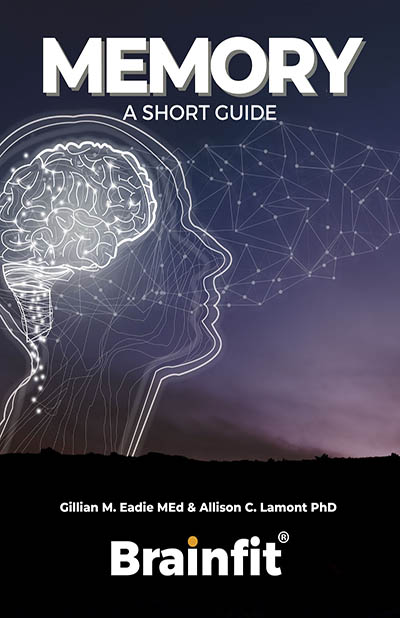These days there is more awareness that what we eat and drink can reduce the risk of developing health conditions such as heart disease, obesity and diabetes. However, there is also growing evidence that identifies certain foods and nutrients that help in the prevention and treatment of
mental health conditions. Health psychologist Iris Fontanilla reports.
Brain food
Medication, along with talking therapies and other types of counselling, has commonly been used to treat mental health conditions such as ADHD, depressive disorders, schizophrenia, bipolar affective disorder, Alzheimer’s and other dementias, panic disorder and obsessive compulsive disorder.
Recently however, researchers have been exploring the potential role of nutrition in the management of these mental health conditions. The research to date is promising — more than 20 randomised controlled trials have identified the value of nutrients in the treatment of low mood, stress, anxiety, aggression (in prisoners), autism and ADHD.
Processed foods linked to mood disorders
A study of nearly 1500 Australian women showed those who had healthy diets higher in magnesium, zinc and folate had fewer depressive symptoms. Findings from both European and Australian studies raise the possibility that eating nutrient-dense foods could help prevent and manage depressive symptoms. They also suggest that diets with lots of vegetables and fruit are associated with lower rates of depression and anxiety, while low vegetable and fruit intake and eating lots of processed foods is linked to higher incidence of mood disorders such as depression and anxiety.
According to Professor Julia Rucklidge, Director of Clinical Psychology at the University of Canterbury,
“Eating a good diet is essential to maintain good physical and mental health. There have been 11 population studies, both cross-sectional and longitudinal, over the last six years, all documenting that the more you eat a Western diet, the greater the risk of depression and the more you eat a Mediterranean diet, the lower the risk for depression.”
Anti-depressant medication
Unsurprisingly, the use of anti-depressant medication is on the rise as it is the mainstay of treatment for common mental health disorders such as depression and anxiety.
In New Zealand one in nine adults and one in six women are prescribed anti-depressants annually and there was a 37 per cent increase in prescriptions of antidepressants from 2006 to 2012. As with most medications, side effects are common. In a recent New Zealand study of more than 1800 people, researchers found the adverse effects of anti-depressant medication also included psychological and interpersonal side-effects. Earlier studies had tended to focus solely on physical side-effects.
Nourish a healthy mind
Five ways to improve brain function and ensure good mood and wellbeing.
1. Low GI carbohydrates
The brain runs on glucose from carbohydrates, but it doesn’t store it like our muscles do, so it needs a constant supply to stay healthy. Low GI carbohydrates found in foods such as whole grains, vegetables and beans are slow-releasing so they are better for refuelling the brain more consistently.
2. Essential fatty acids (EFAs)
These are vital for brain function. The dry weight of the brain is composed of about 60 per cent
fat and around 20 per cent of that fat is made from the omega-3 and omega-6 EFAs.
Omega-3 and omega-6 fats are termed essential because they cannot be made in the body and must come from food.
While our diets are typically high in omega-6 fats (found in a range of seeds, vegetables and vegetable oils) many of us could do with more omega-3 fats. Long-chain omega-3 fats (such as DHA and EPA) are found mainly in oily fish. Short-chain omega-3 fat (ALA) is found in plant foods such as flaxseeds, chia seeds, walnuts and vegetable and nut oils.
Research has shown a link between eating fish and improvements in mood and participants reporting their mental health is better. Other studies point to an association between fish consumption and a reduced risk of cognitive impairment in middle age.
3. Amino Acids
Neurotransmitters, messengers in the brain, are made from amino acids, the building blocks of protein in our food. Serotonin is a neurotransmitter involved in feelings of contentment and is associated with wellbeing and healthy sleep patterns. The amino acid tryptophan is a key ingredient in the production of serotonin and without it serotonin cannot be produced. Tryptophan is found in foods such as eggs, lean meat, poultry (especially turkey) and beans.
4. Vitamins and minerals
Vitamins and minerals, or micronutrients, play a crucial role in promoting and maintaining good mental health and wellbeing. While specific micronutrients, such as vitamins B6, B12 and folate, have been shown to be among the key nutrients for maintaining optimal brain health it’s believed that many more vitamins and minerals, and possibly all of the essential micronutrients, are involved in brain health in various ways. Some vitamins work as antioxidants, helping to protect the brain from oxidation causing cellular damage.
5. Water
Last but not least, water is vital to healthy brain function! The brain is about 80 per cent water and it is essential to maintain good physical and mental health. Mild dehydration not only negatively affects our mood and performance, but has a knock-on effect on our general wellbeing. Symptoms of mild dehydration include restlessness, irritability, headache, poor concentration and feeling lightheaded. More severe dehydration can result in low blood pressure, fainting, rapid heartbeat and even seizures.
Food for thought
In the words of Professor Rucklidge,
“We need them all (nutrients) for good (mental and physical) health. Of course there are some specific nutrients that have been identified as being relevant to good mood, such as B12, folate, omegas, calcium, magnesium… in fact all essential micronutrients. We need to tackle mental health with a broad stroke of nutrients and stop thinking we will find one magic bullet.”
It’s clear that our wellbeing can be enhanced by ensuring we’re eating a nutrient-dense and varied diet that includes plenty of vegetables, whole grains and protein foods, including oily fish. We can no longer deny that what we eat and drink affects our mood, how we feel and how we think.
Food & mood
A case study
How Frances, a health professional, manages her mental health condition.
(As told to nutritionist Bronwen King.)
Describe your condition
I would describe myself as being somewhere on the bipolar spectrum rather than being bipolar. I have times when I feel ‘high’ or ‘speedy’ and elevated and I also have a tendency to feel low — especially in the winter.
I am able to manage my condition through lifestyle, diet and exercise, however others with more serious bipolar symptoms may not be able to manage it this way.
What warning signs do you look out for?
Not sleeping well, feeling creative in the middle of the night or thinking things like colours or numbers are significant are all signs I am out of kilter. Thankfully this is rare these days.
What medical treatment options have you tried?
I have taken antipsychotics when acutely unwell and preventative drugs Lithium and Tegretol for a couple of years each. I tried antidepressants, but only for a few days as I didn’t like how they made me feel. I took low-dose Amitriptyline for a few years which seemed to help prevent my migraines. I have engaged in psychotherapy from time to time.
What food management strategies do you find helpful?
- I keep up my omega-3 fats by eating fish, fish oil, walnuts and linseed as these are good for the brain and arteries.
- I enjoy oats for breakfast in various forms for their fibre and filling power.
- I add walnuts, acidophilus yoghurt and fruit for extra taste and they are beneficial for my gut.
- I like to eat blueberries (fresh or frozen) for their antioxidant properties.
- More recently, due to my gut playing up (which could be stress and mood related), I have reduced starchy carbohydrates and foods high in FODMAPS.
- I keep alcohol to a minimum, mainly because for me it can trigger migraines — and that goes for dark chocolate too, unfortunately.
- I eat plenty of vegetables aiming for lots of different colours — they keep me feeling good, as does reducing processed foods and refined sugar.
- I still enjoy coffee, as cutting it out did not seem to benefit me. I have up to three cups a day. I know others are more sensitive to caffeine than I am.
What else makes you feel good?
I make sure to get enough sleep and lots of exercise, which helps to keep my mood on an even keel. I enjoy walking, cycling, sea kayaking, rock climbing and dancing. I also find that meditation helps to manage my mood.
What are the signs that your strategies are working?
On the whole, my mood is stable and I am happy with my life. My relationships with friends and family are positive. I feel that my lifestyle management approach is proactive, putting me in charge so that I feel well rather than feeling ‘managed’.
Safety Disclaimer This article is not intended as treatment advice. It is important to note from the outset that good nutrition improves our overall physical and emotional wellbeing. Maintaining a healthy diet is just one component of managing mental health issues and should NOT replace medical treatment and/or psychotherapy. If you are struggling with depression and/or other mental health problems please contact your general practitioner or registered mental health practitioner (eg, psychologist, psychotherapist or psychiatrist) for assistance. For more information on diet and nutrition contact a registered nutritionist or dietitian as well.
Useful websites: www.mentalhealth.org.nz www.beatingtheblues.co.nz www.mentalhealth.org.uk www.bda.uk.com/foodfacts
This article comes from Iris Fontanilla who works as a Health Psychologist for the New Zealand Heart/Lung Transplant and Cardiovascular Services, Auckland District Health Board, and is Chairperson of the Institute of Health Psychology, New Zealand Psychological Society. Reproduced with permission of Healthy Food Guide.

© Healthy Life Media Limited. Reproduced with permission from Healthy Food Guide magazine. For more delicious healthy recipes and expert advice visit www.healthyfood.co.nz.





